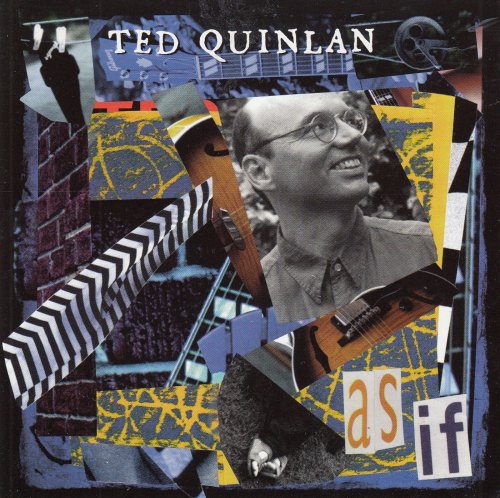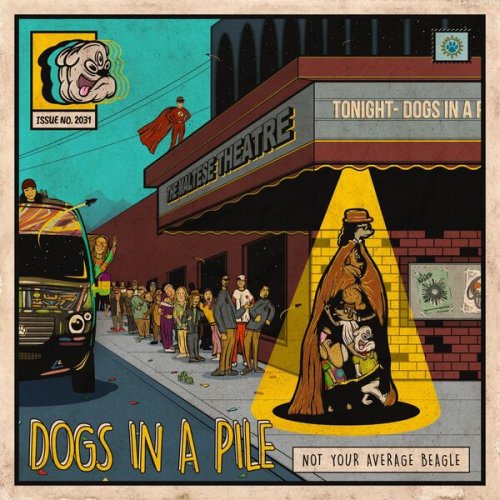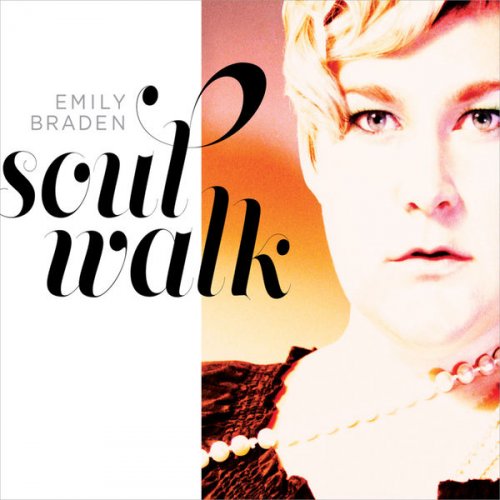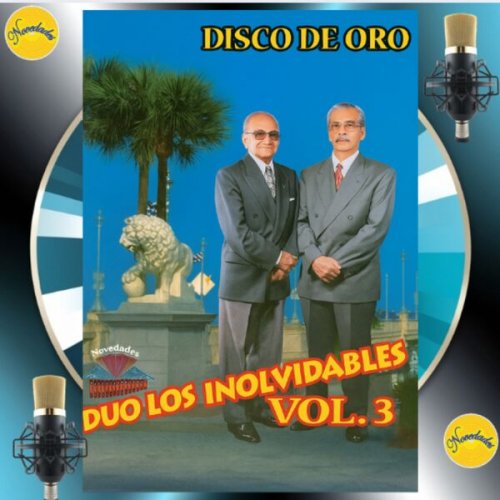Ana Carla Maza - Bahia (2022) Hi Res
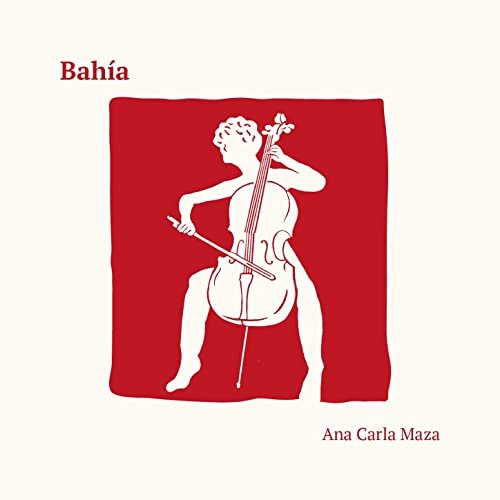
Artist: Ana Carla Maza
Title: Bahia
Year Of Release: 2022
Label: Persona Editorial Ltd (Broken Silence)
Genre: Jazz, Afro-Cuban Jazz
Quality: 320 kbps | FLAC (tracks) | 24Bit/48 kHz FLAC
Total Time: 00:32:55
Total Size: 75 mb | 150 mb | 340 mb
WebSite: Album Preview
Tracklist:Title: Bahia
Year Of Release: 2022
Label: Persona Editorial Ltd (Broken Silence)
Genre: Jazz, Afro-Cuban Jazz
Quality: 320 kbps | FLAC (tracks) | 24Bit/48 kHz FLAC
Total Time: 00:32:55
Total Size: 75 mb | 150 mb | 340 mb
WebSite: Album Preview
01. Ana Carla Maza - La Habana
02. Ana Carla Maza - Bahía
03. Ana Carla Maza - Astor Piazzolla
04. Ana Carla Maza - Todo Irá Bien
05. Ana Carla Maza - Le petit français
06. Ana Carla Maza - Huayno
07. Ana Carla Maza - Les choses simples
08. Ana Carla Maza - A Tomar Café
09. Ana Carla Maza - Miriam Valdés
Bahia is Ana Carla Maza's second studio album. It opens with Habana, a tribute to the Cuban capital, where she was born 26 years ago, to a Chilean father, lush musician, Carlos Maza, and a Cuban mother, guitarist, Mirza Sierra. “Cuba is a volcano,” said the father. “Havana is madness,” replies the girl. Of course, Havana is the Malecón, this boulevard on the Atlantic coast, which receives the spray from the Everglades. However, the city coils around a bay, very closed, protected, safe: Bahia, the rear part of a human, port, cosmopolitan Habana Vieja, crossed by mixtures that have spread from Africa to Brazil.
Bahia, the second title which gives its name to the album, is an ode to Bahia, the neighborhood where Ana Carla spent her childhood, where she built her family memories, between "Culture Friday" and concerts by Silvio Rodrigues or Pablo Milanes. Ana Carla translates the crazy Cuban feeling, "with" her cello, "this best friend", almost a twin, whom she seizes head-on, and who yields to the injunctions of mixtures: classical, sound, jazz , bowing, sharp pizzicato, and voice. “I like to find the energy of life, this “alegria”, joy. And I am transported with curiosity! ". On occasion, she slips a musical nod to the Brazilian brothers, samba, bossa nova, etc., Bahia, the album, travels in Latin America: alongside Huayno, based on a Quechua rhythm and dance from Peru, or Todo will be fine, imbued with Cuban sound, Ana Carla transforms the tango of Astor Piazzola, with Tango for a solo cello, which she originally composed for a quartet on the occasion of the centenary celebration of the Argentine composer.
The nine titles, recorded acoustically in Barcelona, in a “direct, simple, sincere way in one go, one afternoon was enough”. We can never say enough about the importance of the present. For example, you should not look for a subtext in the Petit Français. “At one point, I was in Paris, I was going to a café, the Saint-Régis and I was exchanging love letters with a boy”. That is all. Bahia is a post-pandemic album. The 2020 confinement had taken Ana Carla by surprise, holder of an “overloaded” passport. She must then leave for Mexico, the borders are closing. “We are entering a state of total uncertainty. I wake up in the middle of the night, I gently move my feet, a little voice tells me: Todo will be fine, todo will be fine...”. Everything will be fine, and to say it, she did not seek complicated poetry, but feeling, “por mucho que el pasado haya sido oscuro, miles de razones tienes para ser feliz”. His grandfather, designated as a guerrilla by the dictator Pinochet, was forced into exile in 1975. He found refuge, with all his family, in Cuba after passing through Bordeaux. "His passport mentioned that he could leave Chile, but never return."
One could lament less, but no. She was still a child when her parents left the Bahia district for the countryside. “And there, they founded a music school. My mother leads a choir with sixty children”. Ana Carla left Cuba in 2007. She misses the country. “In Cuba, there is always someone who comes to drink a little coffee in passing, without being in a hurry”. And then it has flowers, bouquets, scarlet flamboyants. She transmits these feelings to us by playing "with this Cuban passion, 'Russian style'", by writing like a woman, "from the inside", says Ana Clara, happy to have composed Bahia entirely "while for a long time, I only play music written by men. A friend told me: look for what is you, breaths, entrances, exits”.
At five years old, Ana Carla started playing the piano. His teacher is Miriam Valdes, the sister of pianist Chucho Valdes. “She was a great pedagogue, never discouraged. As there was no photocopier, she wrote the scores by hand for each of her students. Miriam Valdes died of Covid-19 in October 2021. Ana Carla dedicated the song that closes the album to her. “When I was recording, I imagined her in front of me sitting at the piano. In his Cuban armchair. They say that to be an artist, you have to know how to express pain, and that singing would be like a relief. But for me, it is also a way of capturing moments of love.
Ana Carla's lifeline indicates that she loves going off on a tangent. Classic? Yes, she has conducted fund studies (in Cuba, then at Paris PSPBB and Paris Sorbonne University in Musicology and Classical Interpretation on the cello). Jazz? Obviously, and moreover it was with her father that she made her recording debut at the age of four. Pop/rock? Of course, and moreover the Cuban, nevertheless very French, did not hesitate to face the zenith in 2014 accompanying Jean Louis Aubert on the cello.
Bahia, the second title which gives its name to the album, is an ode to Bahia, the neighborhood where Ana Carla spent her childhood, where she built her family memories, between "Culture Friday" and concerts by Silvio Rodrigues or Pablo Milanes. Ana Carla translates the crazy Cuban feeling, "with" her cello, "this best friend", almost a twin, whom she seizes head-on, and who yields to the injunctions of mixtures: classical, sound, jazz , bowing, sharp pizzicato, and voice. “I like to find the energy of life, this “alegria”, joy. And I am transported with curiosity! ". On occasion, she slips a musical nod to the Brazilian brothers, samba, bossa nova, etc., Bahia, the album, travels in Latin America: alongside Huayno, based on a Quechua rhythm and dance from Peru, or Todo will be fine, imbued with Cuban sound, Ana Carla transforms the tango of Astor Piazzola, with Tango for a solo cello, which she originally composed for a quartet on the occasion of the centenary celebration of the Argentine composer.
The nine titles, recorded acoustically in Barcelona, in a “direct, simple, sincere way in one go, one afternoon was enough”. We can never say enough about the importance of the present. For example, you should not look for a subtext in the Petit Français. “At one point, I was in Paris, I was going to a café, the Saint-Régis and I was exchanging love letters with a boy”. That is all. Bahia is a post-pandemic album. The 2020 confinement had taken Ana Carla by surprise, holder of an “overloaded” passport. She must then leave for Mexico, the borders are closing. “We are entering a state of total uncertainty. I wake up in the middle of the night, I gently move my feet, a little voice tells me: Todo will be fine, todo will be fine...”. Everything will be fine, and to say it, she did not seek complicated poetry, but feeling, “por mucho que el pasado haya sido oscuro, miles de razones tienes para ser feliz”. His grandfather, designated as a guerrilla by the dictator Pinochet, was forced into exile in 1975. He found refuge, with all his family, in Cuba after passing through Bordeaux. "His passport mentioned that he could leave Chile, but never return."
One could lament less, but no. She was still a child when her parents left the Bahia district for the countryside. “And there, they founded a music school. My mother leads a choir with sixty children”. Ana Carla left Cuba in 2007. She misses the country. “In Cuba, there is always someone who comes to drink a little coffee in passing, without being in a hurry”. And then it has flowers, bouquets, scarlet flamboyants. She transmits these feelings to us by playing "with this Cuban passion, 'Russian style'", by writing like a woman, "from the inside", says Ana Clara, happy to have composed Bahia entirely "while for a long time, I only play music written by men. A friend told me: look for what is you, breaths, entrances, exits”.
At five years old, Ana Carla started playing the piano. His teacher is Miriam Valdes, the sister of pianist Chucho Valdes. “She was a great pedagogue, never discouraged. As there was no photocopier, she wrote the scores by hand for each of her students. Miriam Valdes died of Covid-19 in October 2021. Ana Carla dedicated the song that closes the album to her. “When I was recording, I imagined her in front of me sitting at the piano. In his Cuban armchair. They say that to be an artist, you have to know how to express pain, and that singing would be like a relief. But for me, it is also a way of capturing moments of love.
Ana Carla's lifeline indicates that she loves going off on a tangent. Classic? Yes, she has conducted fund studies (in Cuba, then at Paris PSPBB and Paris Sorbonne University in Musicology and Classical Interpretation on the cello). Jazz? Obviously, and moreover it was with her father that she made her recording debut at the age of four. Pop/rock? Of course, and moreover the Cuban, nevertheless very French, did not hesitate to face the zenith in 2014 accompanying Jean Louis Aubert on the cello.
![Victoria Alexanyan - VISHAP (2026) [Hi-Res] Victoria Alexanyan - VISHAP (2026) [Hi-Res]](https://img.israbox.com/img/2026-02/06/fp18m8tfhi28on3z9gks3ab7v.jpg)
![Nathan Surquin - Ambre (2026) [Hi-Res] Nathan Surquin - Ambre (2026) [Hi-Res]](https://www.dibpic.com/uploads/posts/2026-02/1770135175_folder.jpg)
